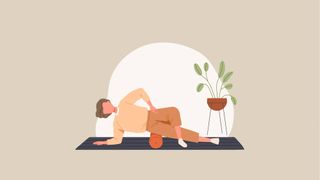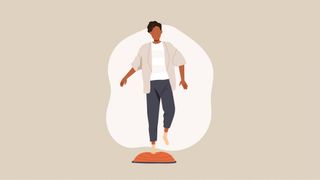How to Recover Well From Orthopedic Surgery
7 smart tips to get back to your former self after the surgery

Physical healing from any surgery can take time depending on the specific diagnosis and treatment, ranging from just a few weeks to over a year. But recouping from orthopedic surgery is more than bones fusing back together, sewing up tears or replacing joints and likely will include changes to your activities of daily living.
At 81, Karen Anderson was watering her lawn on a hot summer day when she briefly turned her attention across the way. The next thing Anderson knew, she had landed on her driveway with her left ankle tangled in a garden hose. "At this age, you simply can't multitask," she says from her Minnetonka, Minn. home.
"It's easy to use crutches in your twenties, but when we get older, these, along with walkers and scooters, require coordination to use."
Anderson ended up breaking her tibia bone which required a plate and screws and for her to be non-weight bearing for 10 weeks. However, she believes as bad as her fall was, being in strong physical shape has been the key to her good recovery.
With two new knees in as many years, an exercise routine that includes three days of yoga, three days of water aerobics and walking daily to keep fit, Anderson offers practical advice: "Stay active, be present in the moment and follow doctor's orders."
"An injury to your foot or ankle is actually more debilitating than hurting your shoulder, hip or wrist because you are going to need to be off your foot, and sometimes for months," says Dr. Andrew Hanselman, a foot and ankle orthopedic surgeon at Duke University.
Additionally, he stressed how critical it is to be in shape, so if an accident does occur, you have the strength and balance to get around by other means.
"It's easy to use crutches in your twenties, but when we get older, these, along with walkers and scooters, require coordination to use and minimize the risk for falling," notes Hanselman.
Life After Surgery
If your doctor requires crutches post-surgery and you have never used them in the past, be sure to have a health care professional train you on how to use these properly. Practicing in advance can save you from bruising under your arms or worse.
"Staying ahead of your pain is critical to keeping your discomfort under control."
There are also YouTube videos if you prefer to practice in the comfort of your own home.
Patricia Brennan, an active 76-year-old from Bloomington, Minn., credits her "boot camp" workout (a group fitness class focused on intense activity alternating with intervals of lighter activity) for her recovery from total hip replacement surgery in 2020.
"The other people I have known are afraid to exercise because it hurts. But when I exercise and do my class, it often feels better afterwards and stays better the next day as well," Brennan says.
Research validates Anderson and Brennan's experiences. The better physical shape you are in before an operation, the better your results.
"Even a single visit with a physical therapist before surgery helps reduce the need for short-term care afterward," says Dr. Scott McAfee, a doctor of physical therapy and orthopedic clinical specialist at MovementX in Washington, D.C.
Pain Management
In the case of shoulder surgery, your arm will most likely be immobilized for approximately six weeks, though physical therapy often starts right away.
Dave Hermetet, 70, from Lancaster, Ky., has weathered two shoulder surgeries just six years apart. He suggests asking your doctor about going home with a pain pump as an alternative to opioids.
"Staying ahead of your pain is critical to keeping your discomfort under control," says Jane Hinton, chief clinical officer at the home health care agency Interim Healthcare.
This is especially true for those who have had a nerve block (an injection to relieve pain). If the block wears off and you are not keeping up with medication, you may need to return to the hospital for an IV to get pain management back on track.
A Few Additional Tips
Hinton offered additional advice for those ambulating with or without a caregiver, post-op:
1) Call a doctor if you have a sudden shortness of breath; this could be the sign of something severe.
2) Buy a pill dispenser to keep track of medications.
3) Have things close by while resting.
4) Consider using a personal emergency response system (such as a necklace you push to call for help) as an extra safety precaution.
5) Make sure a trusted family member, friend or neighbor has an extra key to the house, if needed.
6) Take time to listen to music, meditate, look at photographs, do a jigsaw puzzle — anything that can calm your mind and lift your spirits.
7) Stay connected with family and friends.
Next to patient education, data shows having a solid social support system is vital for a positive patient outcome.
Lastly, the patients with the best results, according to McAfee, "stay committed, regularly perform their personalized home exercise program, ask great questions and actively seeks ways to improve."

You Are Reading
How to Recover Well From Orthopedic Surgery
7 smart tips to get back to your former self after the surgery






